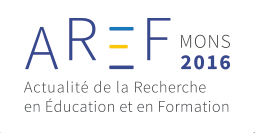P.I.P.P.I. (Programme of Intervention for Prevention of Institutionalization) is a training-intervention-mix methods research programme funded by the Italian Ministry of Welfare. It aims at responding to problems connected to vulnerable parenting and child neglect that is stressed as a common and leading public health problem throughout Europe, cause of inequity and social injustice (EU Agenda 2020; Daly, 2014).
P.I.P.P.I. focuses on supporting parenting through ecological (Bronfenbrenner, 2005) and resilience based (Ungar, 2011) multi-professional and intensive intervention in order to prevent child placement out-of-home, empower parenting skills and, in this way, break the cycle of disadvantages for children. Since 2014, the national scaling up of the programme has been in progress in 124 Italian cities involving 1060 families, their 0-11 year old children, and the practitioners working with them.
In P.I.P.P.I. the professionals use several tools within the method of “participatory and transformative evaluation” (Milani et al., 2014). The main one is RPMonline a tool used with all the families involved in the programme. It is a web interface developed by LabRIEF and C.S.I.A. (Information Technology Center, University of Padova) that supports all the different steps of the work with families and the programme evaluation, by linking together the “social” and “informational” requests of professionals' work (Parton, 2009). It is based on the framework of the Multidimensional Model of the Child's World that fosters all the process of the care plan (Dept. of Health, 2000; Serbati et al., 2016).
Moreover, a novel tablet application called RPMandroid has been developed since 2014 (Fantozzi et al., 2014) and is has been tested with a group of families. It is linked to RPMonline and provides a streamlined, intuitive human-machine interface that leverages on hardware facilities in tablets (touch screen, camera, etc.) in order to:
- ease and empower the RPMonline actions that involve the work in the field with families;
- allow children to be actively involved by making them interact directly with the tablet;
- offer the possibility of sharing with parents information about the intervention process.
In order to deepen the link between tools, family participation, planning and evaluation of social intervention (Milani et al., 2015), the paper aims at answering the following research question: to what extend do the tools RPMonline support the intervention process connecting theory-practice, and link assessment, planning, intervention and evaluation in order to foster and empower family participation and agency?
Since participation is a key factor in intervention, how to use IT tools to let shared assessment and planning be the first step to enhance equity for children and family in care?
Why and how to foster the work with vulnerable families by using IT tools? What are the main strengths and difficulties highlighted until now?
The presentation will show and discuss:
- the main features of the RPMonline and RPMandroid tools, and how they've been developed and upgraded from 2011 using research data;
- the main results of quantitative analysis of outcomes of intervention using RPM data from assessment and planning in the “World of the child” of 1389 children, 1060 families;
- qualitative feedback on the usefulness of RPMonline collected through focus group and reflective meetings with professionals involved in P.I.P.P.I.;
- quantitative and qualitative results from a pilot of RPMandroid (2014-2015) where the main interfaces were validated in different situations (professional-child/family/parents) involving 10 professionals and 10 families.
References
- Bronfenbrenner, U. (2005). Making Humans being Human. Bioecological perspectives on Human Development. London, UK: Sage Publications.
- Daly, M. (2014, Dec. 11). Innovative practices with marginalised families at risk of having their children taken into care. Peer Review in Social Protection and Social Inclusion. Summary Report. European Commission. http://ec.europa.eu/social/BlobServlet?docId=13388&langId=en
- Department of Health (2000). Framework for the assessment of children in need and their families. The family pack questionnaires and scales. London, UK: The Stationery Office.
- Fantozzi, C., Ius M., Serbati, S., Zanon, O., Milani, P. (2014). RPM-android: a tablet application to cooperate with vulnerable families (pp. 115-120). In: S. Ionescu, M. Tomita & S. Cace (Eds). The Second World Conference on Resilience: From Person to Society. Bologna, IT: Monduzzi Editore.
- Milani, P., Serbati, S., Ius, M., Di Masi, D., Zanon, O., Ciampa, A., Tangorra, R. (2014, Dec. 11). Innovative practices with marginalised families at risk of having their children taken into care. Peer Review in Social Protection and Social Inclusion. Host country paper. European Commission. http://ec.europa.eu/social/BlobServlet?docId=13391&langId=en
- Milani, P., Serbati, S., Ius, M. (2015). La parole vivante et la parole morte (pp. 125-142). In: C. Lacharité, C. Sellenet, C. Chamberland (Eds.). La protection de l'enfance. Montreal, CA: Les Presses de l'Université du Québec.
- Parton, N. (2009). Challenges to practice and knowledge in child welfare social work: From the “social” to the “informational”? Children and Youth Services Review, 31(7), 715–721.
- Serbati, S., Ius, M., Milani, P. (2016). P.I.P.P.I. Programme of Intervention for Prevention of Institutionalization. Capturing the Evidence of an Innovative Programme of Family Support Revista de Cercetare si Interventie Sociala, 52, 26-50.
- Ungar, M. (2011). Counseling in Challenging Contexts. Working with individuals and families across clinical and community settings. International Edition. Belmont, CA: Brooks/Cole.
- Présentation

 PDF version
PDF version

